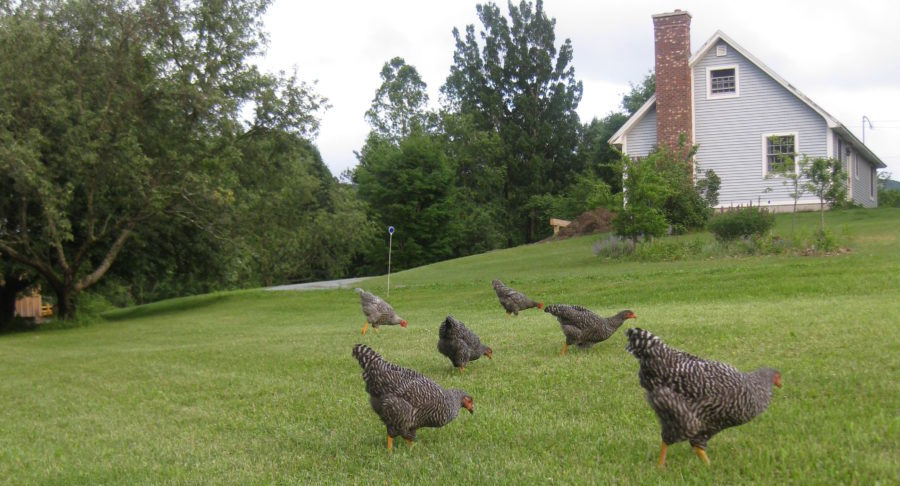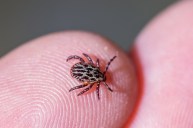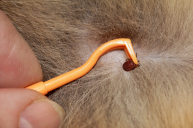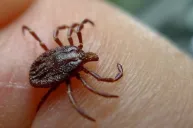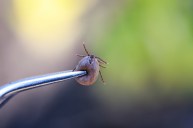What is the most effective and natural tick control in your yard?
Tick control is important. With tick-borne diseases like Lyme disease and Powassan virus, and the fact the tick population is growing and spreading annually in the United States (particularly in the Northeast and the Midwest), many people want to learn more about getting rid of ticks.
One way to control ticks is to let your chicken flock patrol your yard in search of pests and ticks. Anecdotal and scientific evidence suggests your chickens are more than effective at tick and pest control.
Why Chickens Are Good at Controlling Ticks
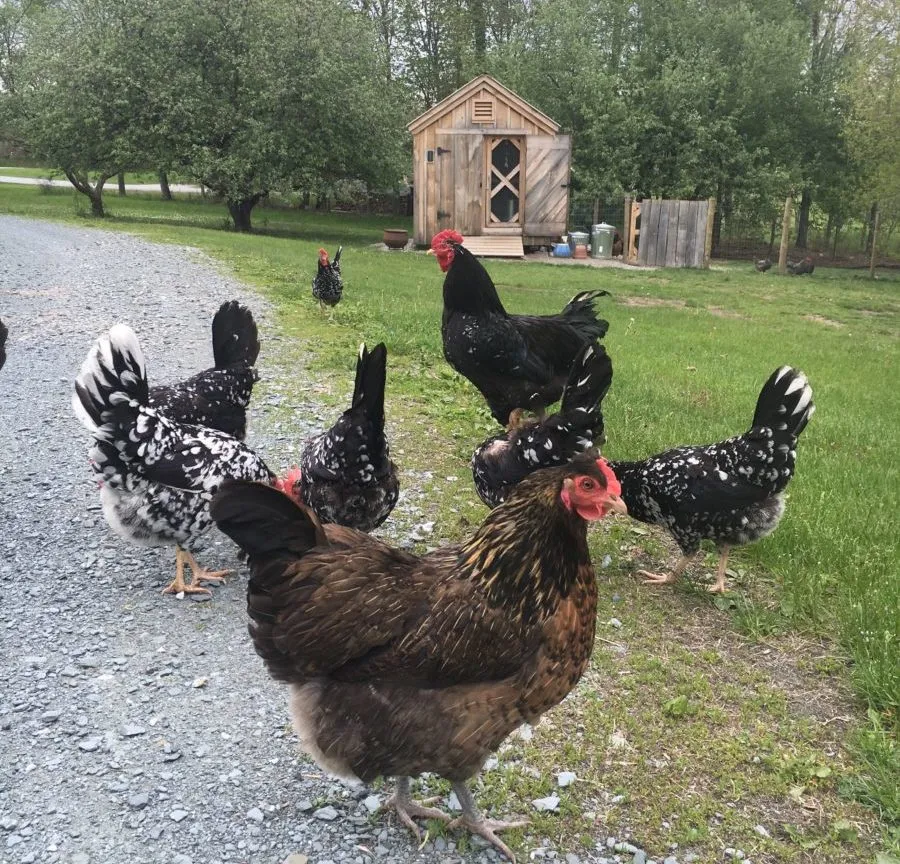
- "After we began raising chickens, Suzanne reported that she was finding far fewer ticks on Sophie the pig," from Home to Roost: A Backyard Farmer Chases Chickens Through the Ages by Bob Sheasley
- "We've been happy to discover that since having our hens on our little homestead, we've enjoyed far fewer flies, mosquitoes, slugs, ticks, spiders, and maple bugs than in previous years." Charley Cooke
- "Since day 4 of having just our first chicken, we have never seen another tick in the backyard." Alicia Barnes
- Check out this list of reader reports from Mother Earth News on fewer ticks after getting chickens
A 1991 scientific study showed that chickens who scavenged for 30 minutes to an hour among tick-infested cattle in Kenya had eaten significant numbers of ticks. Each chicken had 3-331 ticks in its gizzard, with an average of 81 per chicken.
Although the appetite of each individual chicken may vary, overall, chickens are a good natural predator of ticks on cattle. It remains to be seen whether chickens can be used for tick control on deer and mice (or moose!) since there are so few studies.
Chicken or Guinea for Tick Control?
Guinea hens also have a good reputation for eating ticks, but their main drawbacks are noise and a tendency to wander further. If you are considering getting guineas, watch a video to see what they sound like before you may a final decision. Guineas are LOUD.
Chickens may be just as effective as guinea hens in controlling pests like ticks. As a benefit, chickens are very effective at finding and eating grubs and worms, snakes, moles, and mice.
One of my roosters catches mice and tosses them up in the air and then swallows them on the way down.
What Else Can You Do To Control Ticks?
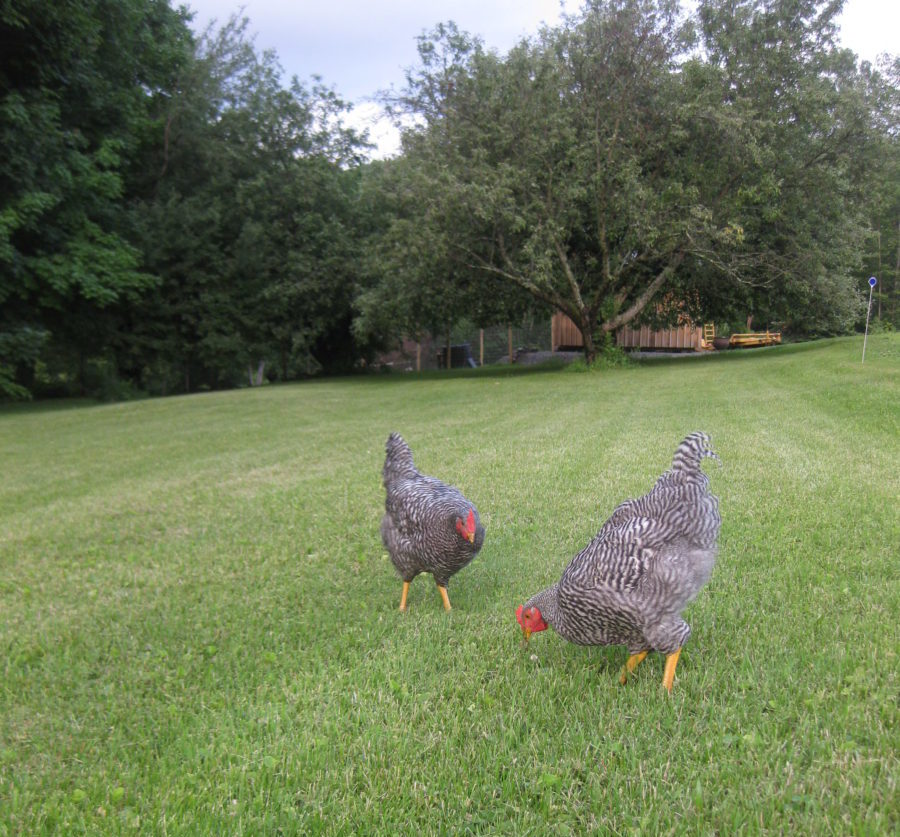
What more can you do to avoid a tick bite in addition to letting your chicken or guinea flock free range in the yard? Here are some tick management tips:
- For best results, pick a chicken breed known for good foraging ability. Birds that have good forage skills are more likely to find and eat ticks.
- Keep grass clipped short on the areas where you spend time
- Reduce or avoid leaf litter, which ticks love to hide in (clean up yard debris). Clean up, keeping in mind that ticks love high humidity and lurk just above the soil surface or in brushy or taller grass areas, as well as in leaf litter and ground covers.
- Use a tick spray: specifically a repellent with DEET
when you need to go into tick-infested areas; for example, areas with tall grasses, brushy or weedy areas (or avoid this type of area altogether).
- Have a tick puller or fine-point tweezers handy for tick removal in the event you find an attached tick. Consider a tick kit
for each vehicle and the house so you can remove ticks immediately.
- Consider buying or making tick tubes (these contain the insecticide Permethrin)
- Know the difference between tick species like the deer tick and other ticks such as the lone star tick, the dog tick, and the brown tick. Not all tick species carry disease (for example, the American dog tick is typically harmless in the Northeast, but carries Rocky Mountain spotted fever further west). You can learn to identify the stages of the tick life cycle, from newly hatched larvae to immature ticks (nymph) to adult stages. Adult ticks are easier to identify and see.
- Get medical attention if you find a tick attached longer than 24 hours, or if you have a headache, a fever, or joint pain after a tick bite.
- When you do remove a tick, flush it down the toilet. Why not the trash bin? Ticks can crawl out of trash.
- Use tick-control products
on pets that go outdoors. Check pets regularly to prevent a tick infestation in your house. Ticks feed on pets to get a blood meal, and your veterinarian will be able to suggest an effective tick treatment.
There are many tick eaters that should be considered above and beyond chickens. We talked about guinea hens but what about other species of birds? Wild turkeys also eat ticks! If you have a tick problem then a pasture of all three types of poultry is a perfect fit. This is the way to decrease the spread of Lyme disease and the number of ticks.
All photos courtesy of Daphne Cybele
This post was originally published on May 10, 2019.
